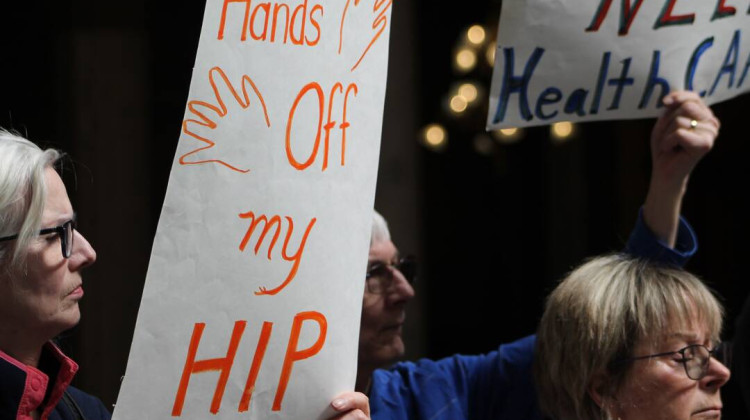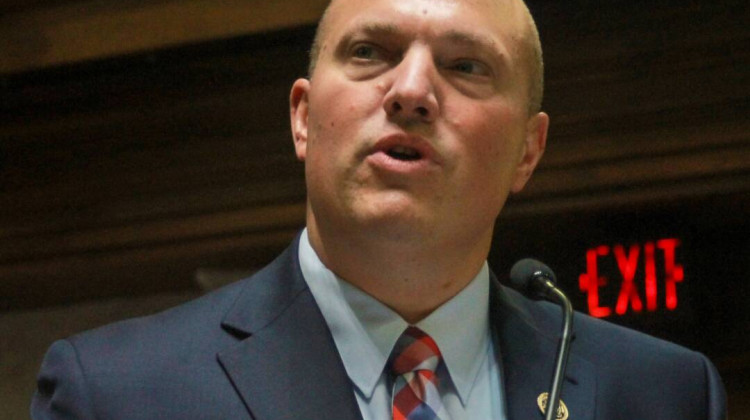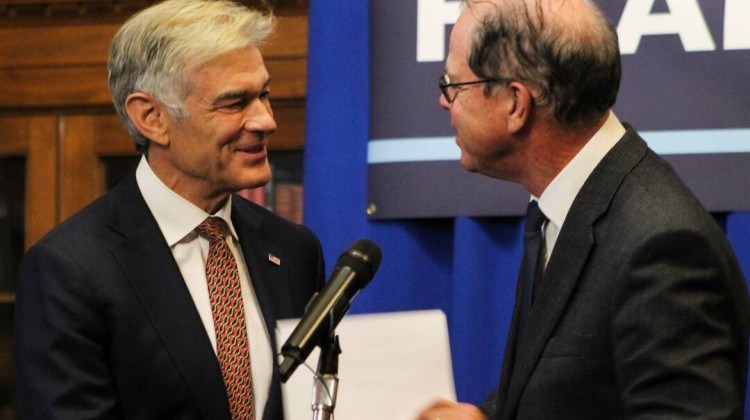
Some Hoosier voters could not cast their ballots this election cycle because of late COVID-19 diagnoses.
Justin Hicks/IPB NewsLast minute COVID-19 diagnoses have left some Hoosier voters frustrated and unable to vote.
Jose Travez from Marion County is one of those voters. He said he planned to vote early on Monday, his day off. But he got a call on Sunday, the weekend before elections, that he had tested positive for COVID-19. Travez said he began to show symptoms that day as well. He said he immediately called anyone he could think of that he had been in contact with, and then it hit him: He would also not be able to vote.
Travez said he tried to look for other voting options between fever bouts, but he said it was too little, too late. He said he felt as if he had taken the responsible steps: He had a plan to vote, and now that plan wouldn’t work. He didn’t know what else to do.
“I wasn’t expecting to be in a situation like this,” Travez said.
READ MORE: Can I Vote By Mail? Here's What You Need To Know For Indiana's Elections
Indiana Public Broadcasting is a partner with ProPublica's Electionland, a nationwide media collaboration to track voting problems and election integrity. If you have experienced or witnessed any problems when casting your ballot, text the word "vote" to 81380 to share your experience.
Travez said he received a text from the southern Indiana community group Hoosier Action, and that was when he found out about what’s known as the "traveling board," which allows voters with disabilities or health issues to cast their ballots. However, he said by the time he had a chance to look into any options the traveling board could provide, it was too late. Travez missed the deadline by mere hours, and that left him feeling frustrated. He said he considered trying to go vote anyway, but said he couldn’t deal with the guilt if he got someone sick.
“I thought of bundling up, of wrapping up in as much clothing as I could,” he said. “But it’s just not the smart thing to do. I was even in contact with my doctor for that, so it adds to the frustration because I thought I had it under control and I thought I could do it."
Anthony Long, vice chair of the Indiana Election Commission, said he’s frustrated the state didn’t take action sooner to avoid this situation. Long said while the commission can provide emergency relief when necessary, the changes needed to assure safe November voting during a pandemic rested with the state legislature. He said measures in place to assist voting during the primaries at the beginning of the COVID-19 pandemic would have been a huge asset now in ensuring that voters like Travez had access to their ballots on Election Day.
“I think a lot of us expected if the pandemic didn’t subside, we were going to do the same thing in the fall. And, well, it didn’t subside and lo and behold, we were met with a roadblock in the fall,” Long said.
Long said voters who have been diagnosed with COVID in the 11th hour echo some of the frustrations of those on the board. He said one of the commission’s biggest accomplishments is the distribution of PPE to polling sites across the state.
Contact reporter Bárbara at banguiano@lakeshorepublicmedia or follow her on Twitter at @radiospice219.
 DONATE
DONATE






 Support WFYI. We can't do it without you.
Support WFYI. We can't do it without you.